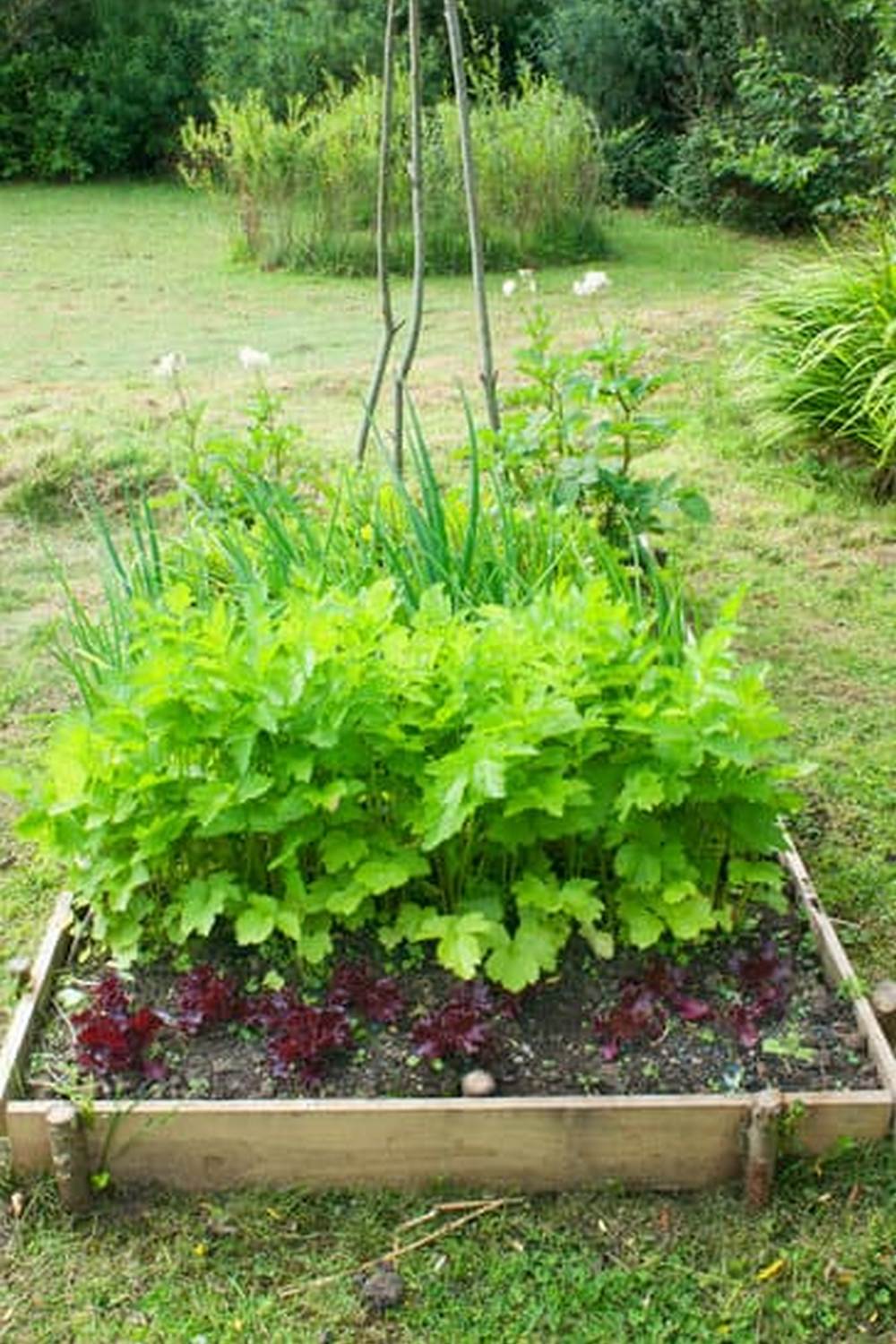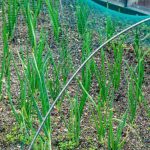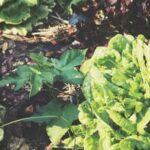Are you interested in starting a vegetable container gardening project in South Florida? Vegetable container gardening in South Florida offers numerous benefits, including the ability to grow your own fresh produce in a limited space and the flexibility to move your garden as needed.
With the right containers, soil, and plant selection, you can create a thriving garden on your patio, balcony, or even indoors. This article will provide essential tips and guidance for successful vegetable container gardening in South Florida.
One of the biggest advantages of vegetable container gardening in South Florida is the ability to control growing conditions. With the region’s unique climate and potential environmental challenges, container gardening allows for greater control over factors such as sunlight exposure, water management, and soil quality. By understanding these specific growing conditions and utilizing the right techniques, you can maximize your garden’s potential.
In this article, we will explore the various aspects of vegetable container gardening in South Florida. From selecting the right containers and soil to choosing the best vegetable varieties for success in this region, we will provide valuable insights to help you get started on your own thriving container garden.
Whether you’re new to gardening or looking to improve your skills, this guide will equip you with the knowledge necessary to create a successful vegetable container garden in South Florida.
Choosing the Right Containers
When it comes to vegetable container gardening in South Florida, choosing the right containers is crucial for the success of your garden. The climate and growing conditions in South Florida require careful consideration when selecting pots and planters for your vegetables. Here are some key factors to keep in mind when choosing the perfect containers for your vegetable garden:
- Size: Ensure that the containers you choose are large enough to accommodate the root systems of the vegetables you plan to grow. For example, deep-rooted vegetables like tomatoes and peppers will need larger pots, while shallow-rooted herbs can thrive in smaller containers.
- Material: Consider the material of the containers, as this can impact temperature regulation and water retention. Terracotta and clay pots are breathable, but they tend to dry out quickly in the hot South Florida sun. Plastic or resin containers are lightweight and retain moisture better.
- Drainage: Proper drainage is essential for preventing waterlogged soil, especially during South Florida’s rainy seasons. Look for containers with drainage holes at the bottom or be prepared to drill holes yourself.
In addition to these factors, it’s important to consider the aesthetic appeal of your containers. Since many South Floridians have limited outdoor space, incorporating attractive pots and planters into your vegetable container garden can enhance the overall look of your outdoor area. By carefully selecting the right containers for your specific vegetables and growing conditions, you’ll set yourself up for a successful vegetable container garden in South Florida.
Finally, don’t forget that some plants will need bigger or smaller entries than others therefore also select accordingly based on what you plan on planting.
Selecting the Best Vegetables for Container Gardening in South Florida
When it comes to vegetable container gardening in South Florida, selecting the right vegetables is crucial for a successful harvest. The hot and humid climate of South Florida presents unique growing conditions that may not be suitable for all types of vegetables, making it important to choose plants that can thrive in this environment.
Some of the best vegetables for container gardening in South Florida include tomatoes, peppers, eggplant, herbs, and leafy greens. These plants are well-suited to the warm climate and can be easily grown in containers on patios, balconies, or other small outdoor spaces. Additionally, these vegetables are known for their high yield and can provide an abundance of fresh produce throughout the growing season.
Tomatoes are particularly popular for container gardening in South Florida due to their versatility and abundant fruit production. Varieties such as cherry tomatoes or grape tomatoes are well-suited for containers and can be grown successfully with proper care and maintenance.
Another great option for vegetable container gardening in South Florida is peppers. They require minimal space and can be grown in relatively small containers. Bell peppers, jalapenos, or banana peppers are all excellent choices for container gardening and can add a pop of color and flavor to your garden.
Lastly, herbs such as basil, mint, oregano, and cilantro are perfect for adding flavor to your favorite dishes while also thriving in the South Florida climate. These herbs can be grown together in larger containers or separately based on individual requirements.
| Vegetable | Suitable Container |
|---|---|
| Tomatoes | Large pots with stakes or cages |
| Peppers | Medium-sized containers with good drainage |
| Herbs | Small to medium-sized pots |
Soil and Fertilizer
When it comes to vegetable container gardening in South Florida, the type of soil used is crucial to the success of your garden. Because containers have limited space, it’s essential to provide the right environment for your plants to thrive. When selecting soil for your containers, choose a high-quality potting mix specifically formulated for container gardening. These mixes are designed to provide proper drainage and aeration, which is essential for healthy root development.
Fertilizer: Nourishing Your Container Garden
In addition to choosing the right soil, providing proper nutrition for your plants is essential for a successful vegetable container garden in South Florida. Due to the limited space in containers, nutrients can become depleted more quickly than in traditional gardens.
To ensure that your plants have the necessary nutrients for healthy growth, use a slow-release fertilizer specifically designed for container gardening. This will help provide a steady supply of nutrients to your plants over an extended period of time, promoting strong and vigorous growth.
Organic Options: A Sustainable Approach
For those looking to take a more sustainable and organic approach to vegetable container gardening in South Florida, there are also organic soil and fertilizer options available. Organic potting mixes and fertilizers provide an environmentally friendly way to nourish your container garden while reducing the use of synthetic chemicals. By using organic products, you can create a healthier growing environment for your vegetables while minimizing environmental impact.
In Summary
The soil and fertilizer you choose play a critical role in the success of your vegetable container gardening in South Florida. By selecting high-quality potting mixes and slow-release fertilizers, you can create an ideal growing environment for your plants. Whether you opt for traditional or organic options, providing the right foundation will ensure that your container garden thrives throughout the growing season and yields bountiful harvests of delicious vegetables.
Sun, Shade, and Water
When it comes to vegetable container gardening in South Florida, understanding the unique growing conditions of the region is crucial for success. With its subtropical climate and high temperatures, South Florida presents some challenges for growing vegetables in containers. However, with the right knowledge and care, it is entirely possible to have a thriving container garden in this region.
Sunlight Requirements
In South Florida, the amount of sunlight can be quite intense, which can be both a blessing and a challenge for vegetable container gardening. When choosing a location for your containers, consider the sunlight requirements of the vegetables you plan to grow. Some may need full sun, while others may thrive in partial shade. Here are some popular vegetables for container gardening in South Florida and their sunlight requirements:
- Tomatoes: 6-8 hours of direct sunlight
- Peppers: 6-8 hours of direct sunlight
- Herbs (basil, mint, oregano): 4-6 hours of direct sunlight
Shade Considerations
While most vegetables thrive in full sun, South Florida’s intense heat can sometimes require providing some shade to prevent wilting or sunscald. Consider placing taller plants or structures to provide some relief from the harsh midday sun. Additionally, during the hottest months, providing afternoon shade or using shade cloths can help protect your container garden from heat stress.
Watering Needs
South Florida’s high temperatures and humidity levels mean that frequent watering is essential for vegetable container gardening success. Containers tend to dry out more quickly than traditional gardens, so it’s important to monitor soil moisture regularly. Be sure to choose pots with adequate drainage holes and use high-quality potting mix that retains moisture while still allowing for proper drainage.
By carefully considering the unique sun, shade, and water requirements for vegetable container gardening in South Florida, you can set yourself up for a successful and bountiful harvest. Understanding these conditions will help you make informed decisions when selecting vegetables, choosing container locations, and providing proper care throughout the growing season.
Pests and Disease Management
Identifying Common Pests and Diseases
When it comes to vegetable container gardening in South Florida, it’s essential to be aware of the potential pests and diseases that can affect your plants. Some common pests to watch out for include aphids, whiteflies, caterpillars, and spider mites. These tiny insects can wreak havoc on your vegetables if not properly managed.
In terms of diseases, fungal infections such as powdery mildew and various types of blight can pose a threat to your container garden. By familiarizing yourself with the signs and symptoms of these common issues, you can take proactive measures to protect your plants.
Natural Pest Control Methods
One of the benefits of vegetable container gardening is that it allows for easier pest control compared to traditional in-ground gardens. For example, you can use physical barriers such as row covers or netting to prevent pests from reaching your plants.
Additionally, introducing beneficial insects like ladybugs or lacewings can help keep harmful insect populations in check. For those dealing with disease issues, opting for resistant plant varieties and practicing good sanitation habits can go a long way in preventing the spread of infections.
Organic Solutions for Disease Management
In South Florida’s warm and humid climate, organic disease management is particularly important for maintaining a healthy container garden. Consider using natural fungicides such as neem oil or copper-based sprays to combat fungal diseases without relying on harsh chemicals.
Furthermore, applying compost tea or other organic soil amendments can help boost the overall health of your plants and enhance their natural ability to fight off diseases. By incorporating these organic solutions into your pest and disease management practices, you can protect your vegetable container garden while minimizing negative impacts on the environment.
By being proactive in identifying potential threats and implementing preventative measures, you can effectively protect your vegetable container garden from common pests and diseases in South Florida.
Maintenance and Care
Once you have set up your vegetable container garden in South Florida, it is crucial to maintain and care for it properly to ensure its health and productivity. Here are some essential tips to keep your vegetable container garden looking its best in the unique climate of South Florida.
First, regular watering is essential for the success of your vegetable container garden in South Florida. The hot and humid weather can quickly dry out the soil in containers, so be sure to check the moisture level frequently. Water your plants as needed, making sure not to overwater or underwater them. Using a self-watering container can be an effective way to provide consistent moisture to your vegetables.
In addition to watering, proper fertilization is crucial for container-grown vegetables in South Florida. Choose a high-quality, slow-release fertilizer specifically formulated for vegetables, and follow the recommended application rates. Regular feeding will help your plants thrive and produce a bountiful harvest despite the challenging growing conditions of South Florida.
| Maintenance and Care Tips | Details |
|---|---|
| Watering | Check moisture levels frequently; use self-watering containers |
| Fertilization | Use slow-release fertilizer formulated for vegetables; follow recommended application rates |
Success Stories
In conclusion, vegetable container gardening in South Florida offers numerous benefits for both experienced and novice gardeners. From the flexibility and mobility of container gardens to the ability to control growing conditions, there are many reasons to explore this method of gardening in the region.
As you venture into vegetable container gardening in South Florida, remember that choosing the right containers is crucial for success. Take time to select pots and planters that are suitable for the vegetables you want to grow and consider factors such as size, drainage, and material.
With the right containers, selected vegetables, soil, fertilizer, understanding of growing conditions unique to South Florida, and proper maintenance, you too can achieve success with vegetable container gardening. By implementing tips and techniques shared by successful South Florida gardeners, your own container garden can thrive and yield a bountiful harvest no matter where you live in this region.
In summary, whether you have limited space or simply want the convenience of growing your own produce at home, vegetable container gardening in South Florida is a rewarding endeavor. With dedication, care, and patience, you can grow a variety of vegetables right on your patio or balcony using the knowledge provided by seasoned experts who have mastered this method of gardening in our unique climate.
Frequently Asked Questions
When Should I Start a Vegetable Garden in South Florida?
In South Florida, the best time to start a vegetable garden is in the fall or early spring when the temperatures are cooler. This creates optimal conditions for many vegetables to grow and thrive.
What Vegetables Grow Best in South Florida?
Several vegetables grow well in South Florida’s climate including tomatoes, peppers, squash, cucumbers, eggplants, and various herbs like basil and cilantro. These crops are well-suited to the warm weather and plentiful sunshine.
Can You Have a Vegetable Garden Year Round in Florida?
Yes, you can have a vegetable garden year-round in Florida due to its mild climate. With careful planning and selection of appropriate vegetables for each season, it’s possible to have a continuous harvest throughout the year. This makes Florida an ideal location for all-season gardening.

If you’re looking to get into vegetable gardening, or are just looking for some tips on how to make your current garden better, then you’ve come to the right place! My name is Ethel and I have been gardening for years. In this blog, I’m going to share with you some of my best tips on how to create a successful vegetable garden.





